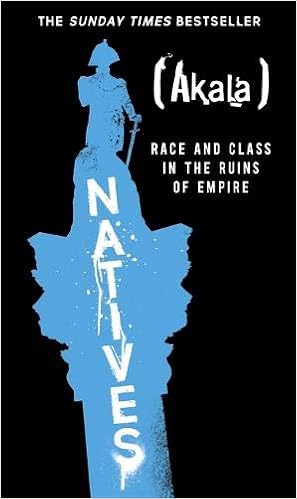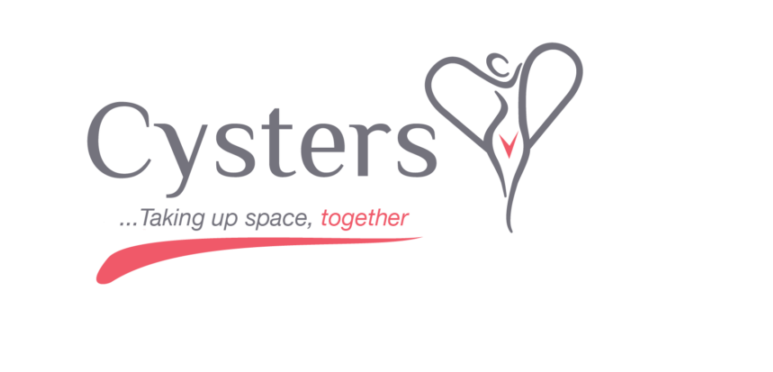Recommended Reads for 2020 – Books That Will Challenge How You See The World
Nikita Aashi Chadha
Being an English Literature graduate, it’s no secret that I love to read. I always have. There is nothing quite like the escapism that comes with reading a great novel. How you can be transported to a different era, a different time or place with a few sentences.
After my degree, and being made to read a lot of the Western Canon… I fell out of love with reading and particularly with fiction. As a fierce woman of colour, I was bored with the books that people told me I really needed to read. People like me, were nowhere to be found within their pages. Unless it was through stereotypes or ‘othering’. As I get older and study more about whiteness, identity and belonging (watch this space, as my MA in Diaspora and Migration at SOAS starts in October 2021 baby) I can’t not see it in my daily reality, the media I consume and the life I lead.
I’m becoming more knowledgeable on the subject academically. As a woman of colour within the UK – my experiences are not always seen as valid. They are seen as personal. They only happened to me, and that doesn’t speak for everyone else or other experiences. People still believe this, even with clear data, statistics and research presented to them. Despite that, I am grateful for the power to now be able to communicate a more in-depth analysis and historical framing for the subject at hand. A couple of people have approached me for a recommended reading list – what texts have I been reading that challenge societal discourse, and that inform my ways of thinking; so, I decided to create a list of my recommended reads from the last year.
Setting goals around education are always key to growth and self-development. BUT it is an overwhelming time of year, and the January blues are real. Sometimes we set goals we are not always able to achieve, or we overburden ourselves with things we must achieve. Self care is important. In the name of just that, I’m going to post multiple lists instead of one. Little and often, and consistency are key; we don’t need to stuff our to-do lists with the entire universe in the first week of the year.
There is something here for everyone. Whether you want to plug into a short essay, escape within the realms of fiction, or learn something new that isn’t typically presented to us. If you’re like me, and particularly interested in race, identity, diaspora – you may enjoy these more than most, or have read some already. Even if you aren’t, these issues are important, they are political and we all need to learn to see a perspective that isn’t ours.
The Master’s Tools Will Never Dismantle The Master’s House
Audre Lorde
https://www.amazon.co.uk/Masters-Tools-Dismantle-Penguin-Modern/dp/0241339723

A quick, yet powerful read. This resonated with me personally, as she speaks about the challenges of being a black feminist and poet, within typically heterosexual and white spaces. How she uses her anger as a vehicle for expression, and to challenge society of it’s racial, homophobic and stunted view. How this view has created structural barriers – for her personally, and which many of us still encounter in a majority of spaces we still exist in.
“If women in the academy truly want a dialogue about racism, it will require recognizing the needs and living contexts of other women”
– Audre Lorde, The Master’s Tools Will Never Dismantle The Master’s House
Rage Becomes Her – The Power of Women’s Anger
Soraya Chemaly
https://www.amazon.co.uk/Rage-Becomes-Her-Soraya-Chemaly/dp/1471172112

As expected, this book made me angry. I think it’s impossible to read about oppression and not feel a type of way about it… especially as a woman. Soraya investigates how women’s expressions of anger are not allowed within the confines of patriarchy, and the undeniable effect that has on the collective female psyche. She looks at women as a whole, but also offers some insight into intersectional identities – she reviews the racial and class hierarchies, and how feminism tends to sway towards whiteness as an ideal. This is a scathing, in-depth analysis of societal bias that illuminates our anger: rape culture, enforced gender roles, the pay gap, motherhood, structural barriers and so much more. The closing section reviews how to use your anger as a tool. Moving from ‘ debilitation to liberation ‘.
“How much anger is too much? Certainly not the anger that, for many of us, is a remembering of a self we learned to hide and quiet. It is willful and disobedient. It is survival, liberation, creativity, urgency, and vibrancy. It is a statement of need. An insistence of acknowledgement. Anger is a boundary. Anger is boundless. An opportunity for contemplation and self-awareness. It is commitment. Empathy. Self-love. Social responsibility. If it is poison, it is also the antidote. The anger we have as women is an act of radical imagination. Angry women burn brighter than the sun.”
– Soraya Chemaly, Rage Becomes Her
The Wretched of The Earth
Frantz Fanon
https://www.amazon.co.uk/Wretched-Earth-Penguin-Modern-Classics/dp/0141186542

This was one of the first books I’ve read on Post-Colonialism that didn’t fill me with a silent, boiling rage. What Fanon describes is unsettling, always of course – but I found the text as a whole incredibly empowering. A real in-depth analysis of the native vs. colonizer or settler relationship, and what needs to be present within a country for a true decolonization process to take place. Not only does he show how colonization affects the economy and structure of a country and its systems – he offers a particular insight unlike any other text I’ve encountered this year. Fanon was a psychotherapist; and the last chapter offers an analysis of the effects of colonialism upon the psyche, and the mental disorders that arose specifically in Algeria, during that time period (not just of those who were colonized either, but a colonizer or two as well). It should be noted though, that Fanon does not speak to the female experience at all – but to wider racial politics at the time as a whole.
“The claim to a national culture in the past does not only rehabilitate that nation and serve as a justification for the hope of a future national culture. In the sphere of psycho-affective equilibrium it is responsible for an important change in the native. Perhaps we haven’t sufficiently demonstrated that colonialism is not satisfied merely with holding a people in its grip and emptying the native’s brain of all form and content. By a kind of perverted logic, it turns to the past of the oppressed people, and distorts, disfigures, and destroys it. This work of devaluing pre-colonial history takes on a dialectical significance today.”
– Frantz Fanon, The Wretched of the Earth
Natives: Race and Class in the Ruins of Empire
Akala
https://www.amazon.co.uk/Natives-Class-Empire-Sunday-Bestseller/dp/1473661218

Anyone that knows me, knows how much I rate Akala. He has such a presence and a way with words – he’s able to translate painful collective history and trauma into a digestible form for the everyday person. With that being said, as with most texts on this list… Natives evoked a realm of emotions from me. Mainly anger, sadness and determination. This text is a coalition of Akala’s personal experiences, and the uncomfortable data, statistics and research that support his claims. As I said in the introduction, as a person of colour, we are always told by whiteness that our experience is not universal. Just because we were treated one way, doesn’t mean it’s applicable to all people of colour. Natives actively stomps on the illogical truth of that claim, and does so with such empathetic powerful storytelling – you feel like you are there, journeying through life with him. Some of his childhood accounts of racism will shock you… as will the evidence that this still persists and affects the black and brown UK youth of today.
‘It’s not about race.’
Nothing is ever about race; you should know this by now.
In reality, the idea of race has been one of the most important ideas in the modern world, it has underpinned centuries of enslavement, justified genocide and been used to decide the demarcation line between who lives and who dies, who gets to access rights of citizenship, property, migration and the vote. To not want to debate, discuss and deal with an idea that has been so impactful reveals a palpable lack of interest in humanity, or at least certain portions of it”
– Akala, Natives: Race and Class in the Ruins of Empire
Why I’m No Longer Talking to White People About Race
Reni Eddo-Lodge
https://www.amazon.co.uk/Longer-Talking-White-People-About/dp/140887055X

I think I left the most controversial one for last. I want to start with this – if you have seen this title and assumed that she is speaking about all white people you are wrong. If you see this, and feel the need to discuss reverse racism with me… please don’t. I don’t need to hear about the dictionary definition of racism – constructed by those in power. People who are marginalised decide what oppression is. Racism = prejudice + power (thank you Reni for articulating it so well)
This text actually started as a blog post. Reni, the author found that when she tried to discuss intersectionality, or racism within feminist circles – she was accused of dividing a movement, as opposed to just pointing out the nuances of racism that all people of colour experience (story of my life). When she says she is no longer speaking to white people about race, she does not mean the entire race; but the majority that point blank refuse to accept the legitimacy of structural racism, and all the symptoms that occur as a result. This was my favourite book from the list, and possibly of the year. Reni doesn’t only supply the reader with her views (which are incredibly poignant, powerful and well researched) but also a backdrop of contemporary, UK based history surrounding race politics and relations. It directly contrasts the claim that this is not systematic – and she offers a stunning insight into white privilege, white feminism, and the intersection of race and class. I would recommend this text to everyone. People of colour… you need to know the events contained in this book, and to read this. Even though it will make you angrier than you ever conceived. White people, reading this will make you uncomfortable, depressed even. But it is necessary – education is the only place that true allyship and advocacy can start.
“If you are disgusted by what you see, and if you feel the fire coursing through your veins, then it’s up to you. You don’t have to be the leader of a global movement or a household name. It can be as small scale as chipping away at the warped power relations in your workplace. It can be passing on knowledge and skills to those who wouldn’t access them otherwise. It can be creative. It can be informal. It can be your job. It doesn’t matter what it is, as long as you’re doing something.”
– Reni Eddo-Lodge, Why I’m No Longer Talking to White People About Race
“This is the difference between racism and prejudice. There is an unattributed definition of racism that defines it as prejudice plus power. Those disadvantaged by racism can certainly be cruel, vindictive, and prejudiced. Everyone has the capacity to be nasty to other people, to judge them before they get to know them. But there simply aren’t enough black people in positions of power to enact racism against white people on the kind of grand-scale it currently operates at against black people. Are black people over-represented in the places and spaces where prejudice could really take effect? The answer is almost always no.”
– Reni Eddo-Lodge, Why I’m No Longer Talking to White People About Race




